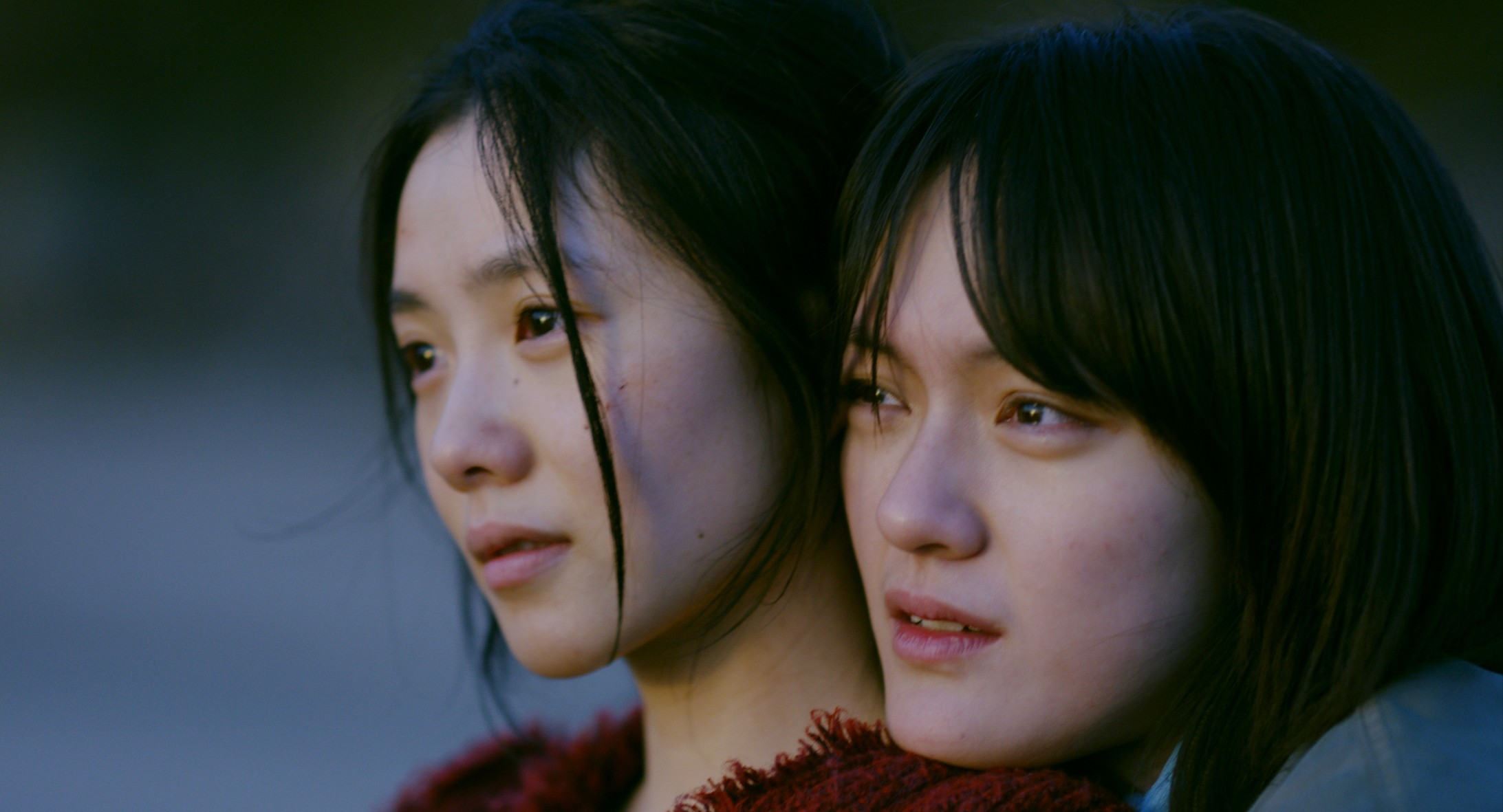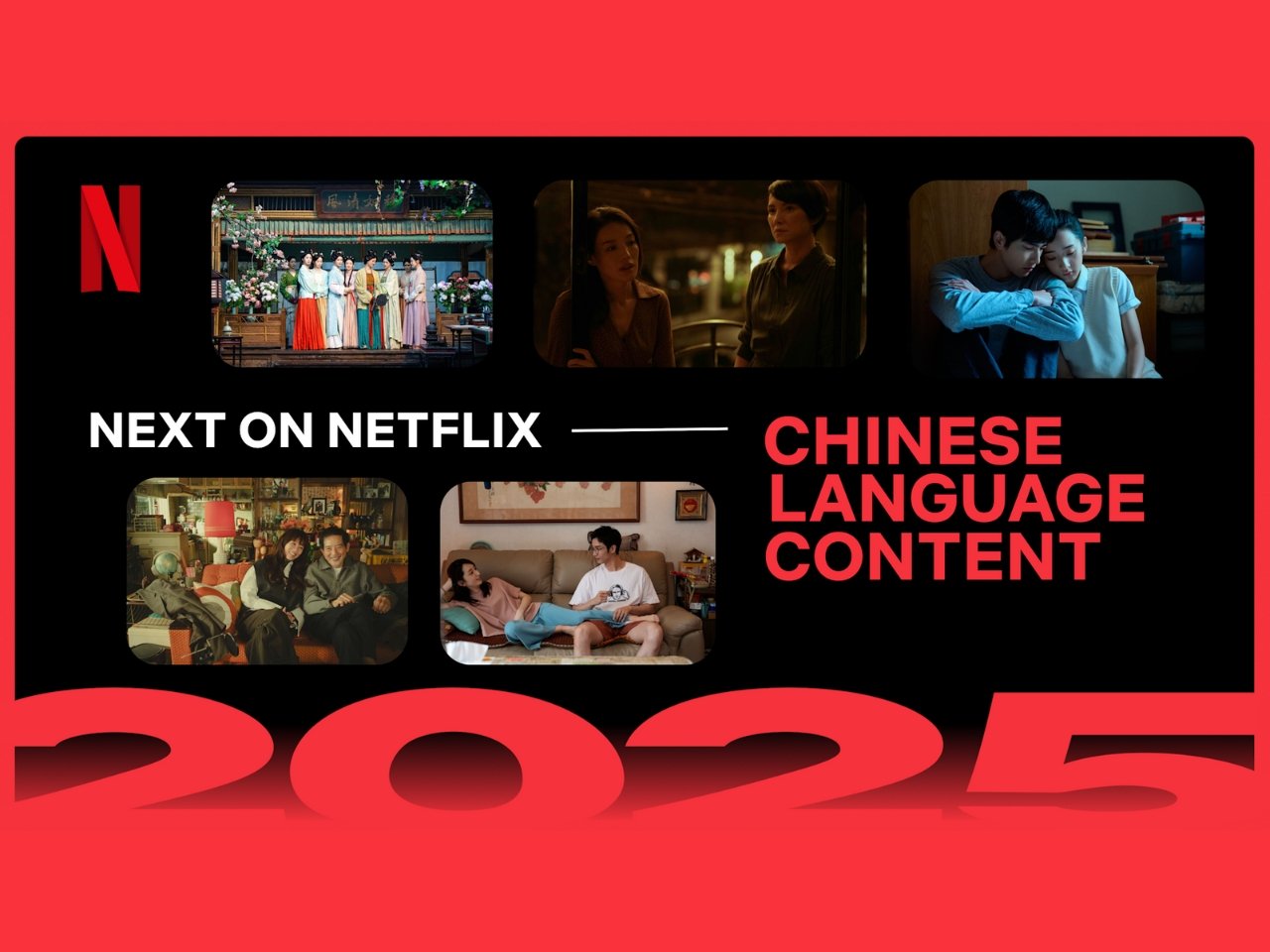Another edition of annual independent film festival Berlinale is underway, and 14 Chinese films have been selected for the program. This undoubtedly marks a standout year for independent Chinese cinema. Many of these films are world premieres — here is a quick guide to this year’s selection.
The most anticipated Chinese film at Berlinale this year is Vivian Qu’s Xiang Fei De Nv Hai (Girls on Wire). The collaboration between the film’s lead actresses, Liu Haocun and Wen Qi, has been highly anticipated by audiences. These two Gen Z actresses both made their debuts in acclaimed films directed by some of China’s most renowned filmmakers, and their acting skills have been widely recognized. This marks Wen Qi’s second collaboration with Vivian Qu after Jia Nian Hua (Angels Wear White), a critically acclaimed film that screened at the 74th Venice International Film Festival.
The story follows two distant cousins. Fang Di (played by Wen Qi) leaves her hometown to work as a stunt performer at China’s largest film production base, while Tian Tian (played by Liu Haocun) stays behind to care for her drug-addicted father. The English title, Girls on Wire, symbolizes the challenges women face in contemporary society. Director Vivian Qu explained that the stunt girl Fang Di’s “wire” is visible, whereas Tian Tian’s is invisible, representing her internal struggles. How these two actresses interpret femininity and the struggles of young women in Chinese society is a major theme of the film.
Another highly anticipated screening is the 4K restored version of Shennü (Goddess). This film is one of the most significant works of Ruan Lingyu, the most renowned Chinese actress of the 1930s. The protagonist, also the goddess in the title, is both a prostitute and a single mother in Shanghai during the Republican Era. During a police raid, she seeks shelter with Zhang, a brutal gambler who becomes her pimp. The film was groundbreaking for its time, using a Westernized expressionist style to critique China’s social structure and the oppression of women.
Ruan, often referred to as the “Greta Garbo of the East,” has a history with Berlinale pre-dating this digital restoration: Maggie Cheung won the festival’s Silver Bear award in 1992 for her portrayal of Ruan Lingyu in Stanley Kwan’s biopic, Center Stage.
Beyond the films themselves, Chinese female filmmakers have also made a strong showing. Fan Bingbing graced the Berlinale red carpet in an elegant gown for the opening ceremony. Two years after presenting Green Night, she returns in a new role — as an international jury member. Another renowned actress, Yao Chen, has also arrived in Berlin to promote Sheng Xi Zhi Di (Living the Land), a film she produced. Directed by Huo Meng, the story spans four generations, portraying births, deaths, weddings, and funerals while showcasing the resilience and resourcefulness of ordinary people in China.
Beyond live-action features, Chinese cinema is also making appearances in other categories.
Ran Bi Wa (A Story about Fire) is an animated film produced by China’s most acclaimed animation studio, Shanghai Animation Film Studio. Featuring voice acting by well-known actors Yang Haoyu and Zhou Xun, this 2D animation has drawn significant attention, especially following the success of Ne Zha 2 at the Chinese New Year box office. Whether this film will help revive China’s traditional 2D animation industry remains to be seen.
Meanwhile, Zhi Wu Xue Jia (The Botanist) is an experimental feature directed by Jing Yi. Its world premiere marks the director’s debut, and it tackles a sensitive topic: the contrast between Shanghai, China’s most modern city, and a rural village in Xinjiang, one of the country’s most remote regions. Through the perspectives of two teenage protagonists and the voice of nature itself, the film offers a fresh perspective on urban-rural relationships and identity.
Other films explore themes such as hometown nostalgia (Guo Chang, directed by Nana Xu), queerness (Queerpanorama, directed by Jun Li), industrialization (What’s Next, the debut of director Cao Yiwen), and teenage struggles (Ke Wai Huo Dong or Extracurricular Activity, directed by Dean Wei and Xu Yidan).
Overall, Chinese films are making a significant impact at Berlinale 2025. Whether they win awards or not, their diversity and depth have already impressed many audiences.
Cover image: Liu Haocun (left) and Wen Qi (right) in the film. Photo via Berlinale.


















